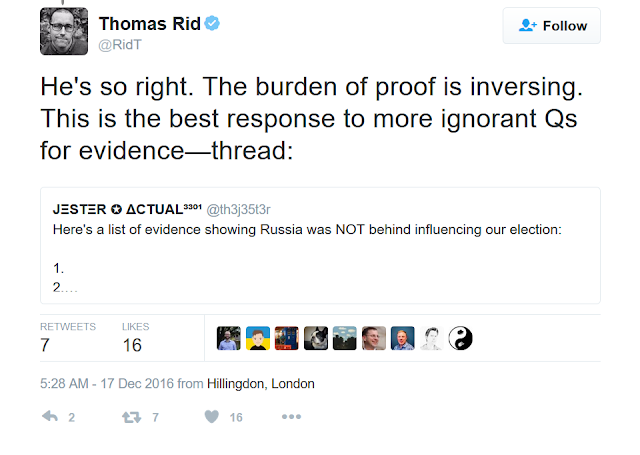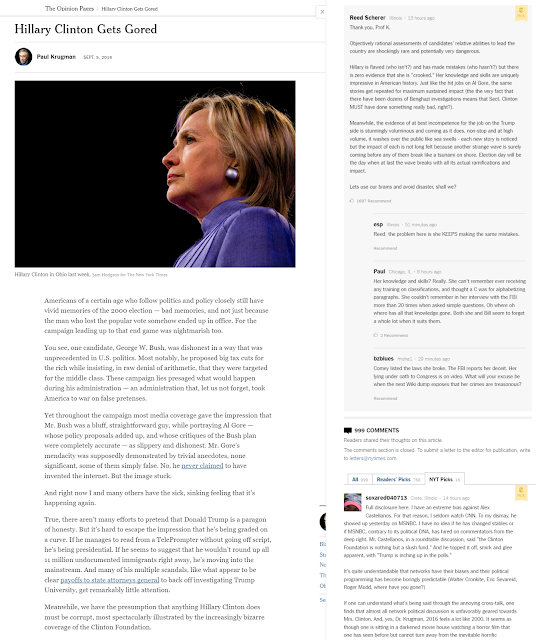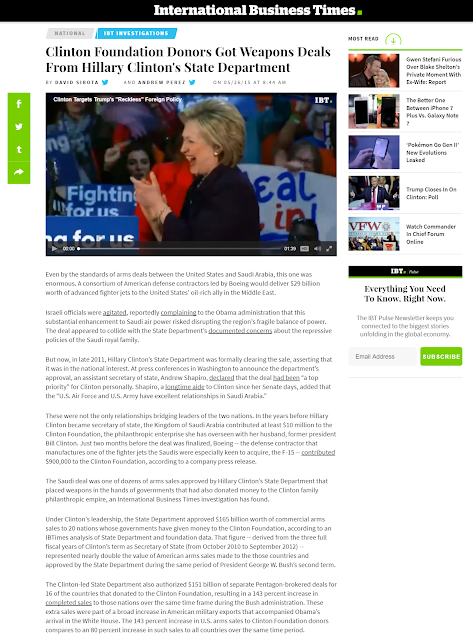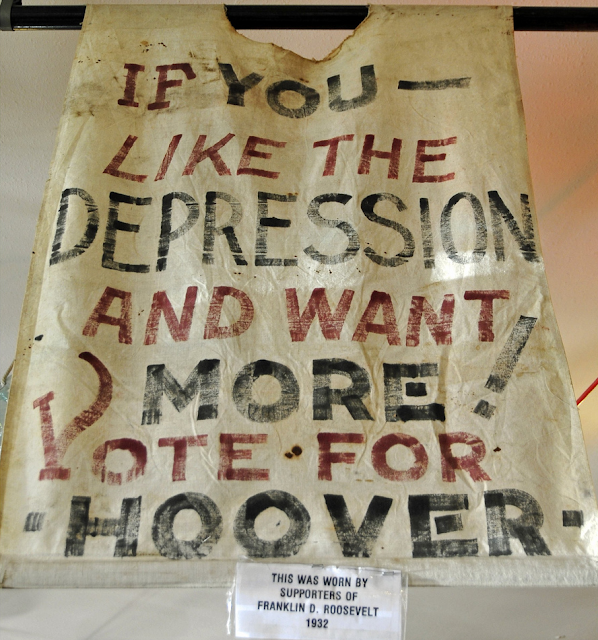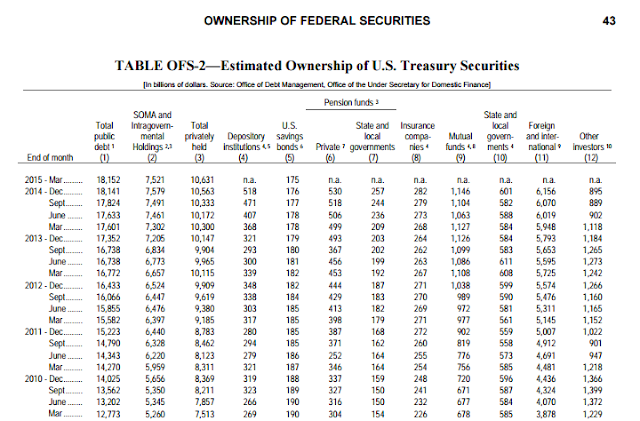'The Washington Post' reported on this back in June of 2016, in this story entitled 'Russian government hackers penetrated DNC, stole opposition research on Trump' —
https://www.washingtonpost.com/world/national-security/russian-government-hackers-penetrated-dnc-stole-..._story.html
And here is a later story from 'The Washington Post', dated December 9, 2016, entitled 'Secret CIA assessment says Russia was trying to help Trump win White House' —
https://www.washingtonpost.com/world/national-security/obama-orders-review-of-russian-hacking-..._story.html
But notice this paragraph from the later story, explicitly acknowledging that a connection could not be made to the Russian government — in direct contradiction to the titles of both 'Washington Post' stories —
https://www.washingtonpost.com/world/national-security/obama-orders-review-of-russian-hacking-..._story.html
...
The CIA presentation to senators about Russia’s intentions fell short of a formal U.S. assessment produced by all 17 intelligence agencies. A senior U.S. official said there were minor disagreements among intelligence officials about the agency’s assessment, in part because some questions remain unanswered.
For example, intelligence agencies do not have specific intelligence showing officials in the Kremlin “directing” the identified individuals to pass the Democratic emails to WikiLeaks, a second senior U.S. official said. Those actors, according to the official, were “one step” removed from the Russian government, rather than government employees. Moscow has in the past used middlemen to participate in sensitive intelligence operations so it has plausible deniability.
...
So it needs to be repeated — 'The Washington Post' openly acknowledges that they have nothing to prove their basic claim that the Russian government attempted to manipulate the 2016 U.S. Presidential election, but they make that assertion anyway — it is a conspiracy theory, and the 'Washington Post' just expects its readers to believe it.
Here is an article by Glenn Greenwald, dated December 10, 2016, entitled 'Anonymous Leaks to the WashPost About the CIA’s Russia Beliefs Are No Substitute for Evidence', where he attacks 'The Washington Post' article quoted above —
https://theintercept.com/2016/12/10/...leaks-to-the-washpost-about-the-cias-russia-beliefs-are-no-substitute-for-evidence/
THE WASHINGTON POST late Friday night published an explosive story that, in many ways, is classic American journalism of the worst sort: The key claims are based exclusively on the unverified assertions of anonymous officials, who in turn are disseminating their own claims about what the CIA purportedly believes, all based on evidence that remains completely secret.
...
Needless to say, Democrats — still eager to make sense of their election loss and to find causes for it other than themselves — immediately declared these anonymous claims about what the CIA believes to be true, and, with a somewhat sweet, religious-type faith, treated these anonymous assertions as proof of what they wanted to believe all along: that Vladimir Putin was rooting for Donald Trump to win and Hillary Clinton to lose and used nefarious means to ensure that outcome. That Democrats are now venerating unverified, anonymous CIA leaks as sacred is par for the course for them this year, but it’s also a good indication of how confused and lost U.S. political culture has become in the wake of Trump’s victory. ...
And here is an article at 'Esquire', dated October 20, 2016, entitled 'How Russia Pulled Off the Biggest Election Hack in U.S. History'. Notice that not a single thing in this article is documented, including a claim that the Russians "even hacked satellites to cover their tracks" —
http://www.esquire.com/news-politics/a49791/russian-dnc-emails-hacked/
Other than as an exercise in testing your credulity, that article is not worth reading, but here are just a couple of quotes to demonstrate that point —
http://www.esquire.com/news-politics/a49791/russian-dnc-emails-hacked/
https://archive.is/SemNi
...
The most effective outlet by far, however, was WikiLeaks. Russian intelligence likely began feeding hacked documents to Julian Assange's "whistleblower" site in June 2015, after breaching Saudi Arabia's foreign ministry. A group called WikiSaudiLeaks, probably a Guccifer-like front for Fancy Bear, claimed that "WikiLeaks have been given access to some part of these documents." The so-called Saudi Cables showed princes buying influence and monitoring dissidents. They became a major news story, proving that the old methods worked even better in the twenty-first century.
...
Notice the uses of the words 'likely' and 'probably' in the quote above. Should we thank the author for his honesty in at least not pretending that he had real knowledge that what he wrote is true? It would have been more honest, if he had begun that paragraph with: "I'm going to make some stuff up here, because I want to ..."
And for one more example, consider this quote from the same 'Esquire' article —
http://www.esquire.com/news-politics/a49791/russian-dnc-emails-hacked/
https://archive.is/SemNi
...
Using cloud services such as OneDrive was a clever but risky move—it was a little like taking the bus to make off with stolen goods from a burglary. Though the widespread use of the services by legitimate users offered a degree of cover for the hackers, data provided by Microsoft also helped America's elite digital spies identify the DNC intruders "with confidence" as Russian. It is even possible that the U. S. government has been able to identify the names and personal details of individual operators. The Russians knew they'd been caught. On July 30, an FSB press release announced that twenty government and defense organizations had been hit by high-powered spying tools.
...
I assume the link below is the FSB (i.e. the Federal Security Service of the Russian Federation) press release the author is talking about, but how on earth does it prove "the Russians knew they'd been caught", as the author wrote in the quote above? It took some digging to find the memo, since the author did not provide a link to it, and it is in Russian, so the author had to translate it to make use of it at all (maybe the author reads Russian, and just neglected to point that out) —
https://archive.is/sNSWu
http://www.fsb.ru/fsb/press/message/single.htm%21id%3D10437870%40fsbMessage.html
https://www.scmagazineuk.com/fsb-spotted-malware-on-20-government-org-networks/article/529964/
Here is the Google translation — for what it is worth — I cannot attest to its accuracy, since I do not read Russian. In any case, the only thing this translation of the press release indicates is what it contains — that the Russians believe they were targeted by professionals, and that the attack was similar to operations 'previously identified'. Anything else is conjecture —
 |
| FSB press release from July 30, 2016, regarding cyber espionage. |
Here is a tweet from the author of the article at 'Esquire' quoted above, in response to skeptics who think that those making this accusation of a supposed 'Russian Connection' should provide proof, as opposed to their speculations —
https://twitter.com/RidT/status/810114356797210624
http://archive.vn/Sszch
Notice the tweet that the author is responding to demands that critical readers prove a negative. This is a common fallacy where one attempts to shift the burden of proof in order to avoid their own responsibility for providing evidence and proof when making an accusation. The individual making the assertion has the burden of proof, since, strictly speaking, it is impossible to prove a claim cannot be true.
How would you prove that no reindeer can fly, for example? Dropping as many reindeer as you could catch out of an airplane only proves that those you dropped could not fly — it does not prove that no reindeer can fly. In short, there is no end to the claims that must be believed, if we could only eliminate those claims that we must prove are false. Did I tell you about my aunt who lives on Pluto, and survives on Limburger cheese? Oh, I can't prove she exists, but we communicate via mental telepathy. What evidence do you have to prove my claim is false?
Thomas Rid is correct in the tweet above — "The burden of proof is inversing." It is just that he is the one who is attempting to 'inverse' it. He is responsible for proving his speculations, and no one should believe them until he has done so — readers have no obligation to prove his claims are false —
http://www.nizkor.org/features/fallacies/burden-of-proof.html
https://www.logicallyfallacious.com/tools/lp/Bo/LogicalFallacies/145/Proving-Non-Existence
Julian Assange, the founder of WikiLeaks, has repeatedly denied that Russia had any hand in the leaks that were damaging to the Clinton campaign. Here is Assange in an interview denying that accusation —
https://www.youtube.com/watch?v=_sbT3_9dJY4
https://www.rt.com/news/365164-assange-interview-wikileaks-russia/
https://www.rt.com/news/365164-assange-interview-wikileaks-russia/
And here is Assange's statement regarding the 2016 U.S. Election on wikileaks.org —
https://wikileaks.org/Assange-Statement-on-the-US-Election.html
https://archive.is/Z7uTQ
Assange Statement on the US Election
8 November 2016
By Julian Assange
In recent months, WikiLeaks and I personally have come under enormous pressure to stop publishing what the Clinton campaign says about itself to itself. That pressure has come from the campaign’s allies, including the Obama administration, and from liberals who are anxious about who will be elected US President.
On the eve of the election, it is important to restate why we have published what we have.
The right to receive and impart true information is the guiding principle of WikiLeaks – an organization that has a staff and organizational mission far beyond myself. Our organization defends the public’s right to be informed.
This is why, irrespective of the outcome of the 2016 US Presidential election, the real victor is the US public which is better informed as a result of our work.
The US public has thoroughly engaged with WikiLeaks’ election related publications which number more than one hundred thousand documents. Millions of Americans have pored over the leaks and passed on their citations to each other and to us. It is an open model of journalism that gatekeepers are uncomfortable with, but which is perfectly harmonious with the First Amendment.
We publish material given to us if it is of political, diplomatic, historical or ethical importance and which has not been published elsewhere. When we have material that fulfills this criteria, we publish. We had information that fit our editorial criteria which related to the Sanders and Clinton campaign (DNC Leaks) and the Clinton political campaign and Foundation (Podesta Emails). No-one disputes the public importance of these publications. It would be unconscionable for WikiLeaks to withhold such an archive from the public during an election.
At the same time, we cannot publish what we do not have. To date, we have not received information on Donald Trump’s campaign, or Jill Stein’s campaign, or Gary Johnson’s campaign or any of the other candidates that fufills our stated editorial criteria. As a result of publishing Clinton’s cables and indexing her emails we are seen as domain experts on Clinton archives. So it is natural that Clinton sources come to us.
We publish as fast as our resources will allow and as fast as the public can absorb it.
That is our commitment to ourselves, to our sources, and to the public.
This is not due to a personal desire to influence the outcome of the election. The Democratic and Republican candidates have both expressed hostility towards whistleblowers. I spoke at the launch of the campaign for Jill Stein, the Green Party candidate, because her platform addresses the need to protect them. This is an issue that is close to my heart because of the Obama administration’s inhuman and degrading treatment of one of our alleged sources, Chelsea Manning. But WikiLeaks publications are not an attempt to get Jill Stein elected or to take revenge over Ms Manning’s treatment either.
Publishing is what we do. To withhold the publication of such information until after the election would have been to favour one of the candidates above the public’s right to know.
This is after all what happened when the New York Times withheld evidence of illegal mass surveillance of the US population for a year until after the 2004 election, denying the public a critical understanding of the incumbent president George W Bush, which probably secured his reelection. The current editor of the New York Times has distanced himself from that decision and rightly so.
The US public defends free speech more passionately, but the First Amendment only truly lives through its repeated exercise. The First Amendment explicitly prevents the executive from attempting to restrict anyone’s ability to speak and publish freely. The First Amendment does not privilege old media, with its corporate advertisers and dependencies on incumbent power factions, over WikiLeaks’ model of scientific journalism or an individual’s decision to inform their friends on social media. The First Amendment unapologetically nurtures the democratization of knowledge. With the Internet, it has reached its full potential.
Yet, some weeks ago, in a tactic reminiscent of Senator McCarthy and the red scare, Wikileaks, Green Party candidate Stein, Glenn Greenwald and Clinton’s main opponent were painted with a broad, red brush. The Clinton campaign, when they were not spreading obvious untruths, pointed to unnamed sources or to speculative and vague statements from the intelligence community to suggest a nefarious allegiance with Russia. The campaign was unable to invoke evidence about our publications—because none exists.
In the end, those who have attempted to malign our groundbreaking work over the past four months seek to inhibit public understanding perhaps because it is embarrassing to them – a reason for censorship the First Amendment cannot tolerate. Only unsuccessfully do they try to claim that our publications are inaccurate.
...
On the eve of the election, it is important to restate why we have published what we have.
The right to receive and impart true information is the guiding principle of WikiLeaks – an organization that has a staff and organizational mission far beyond myself. Our organization defends the public’s right to be informed.
This is why, irrespective of the outcome of the 2016 US Presidential election, the real victor is the US public which is better informed as a result of our work.
The US public has thoroughly engaged with WikiLeaks’ election related publications which number more than one hundred thousand documents. Millions of Americans have pored over the leaks and passed on their citations to each other and to us. It is an open model of journalism that gatekeepers are uncomfortable with, but which is perfectly harmonious with the First Amendment.
We publish material given to us if it is of political, diplomatic, historical or ethical importance and which has not been published elsewhere. When we have material that fulfills this criteria, we publish. We had information that fit our editorial criteria which related to the Sanders and Clinton campaign (DNC Leaks) and the Clinton political campaign and Foundation (Podesta Emails). No-one disputes the public importance of these publications. It would be unconscionable for WikiLeaks to withhold such an archive from the public during an election.
At the same time, we cannot publish what we do not have. To date, we have not received information on Donald Trump’s campaign, or Jill Stein’s campaign, or Gary Johnson’s campaign or any of the other candidates that fufills our stated editorial criteria. As a result of publishing Clinton’s cables and indexing her emails we are seen as domain experts on Clinton archives. So it is natural that Clinton sources come to us.
We publish as fast as our resources will allow and as fast as the public can absorb it.
That is our commitment to ourselves, to our sources, and to the public.
This is not due to a personal desire to influence the outcome of the election. The Democratic and Republican candidates have both expressed hostility towards whistleblowers. I spoke at the launch of the campaign for Jill Stein, the Green Party candidate, because her platform addresses the need to protect them. This is an issue that is close to my heart because of the Obama administration’s inhuman and degrading treatment of one of our alleged sources, Chelsea Manning. But WikiLeaks publications are not an attempt to get Jill Stein elected or to take revenge over Ms Manning’s treatment either.
Publishing is what we do. To withhold the publication of such information until after the election would have been to favour one of the candidates above the public’s right to know.
This is after all what happened when the New York Times withheld evidence of illegal mass surveillance of the US population for a year until after the 2004 election, denying the public a critical understanding of the incumbent president George W Bush, which probably secured his reelection. The current editor of the New York Times has distanced himself from that decision and rightly so.
The US public defends free speech more passionately, but the First Amendment only truly lives through its repeated exercise. The First Amendment explicitly prevents the executive from attempting to restrict anyone’s ability to speak and publish freely. The First Amendment does not privilege old media, with its corporate advertisers and dependencies on incumbent power factions, over WikiLeaks’ model of scientific journalism or an individual’s decision to inform their friends on social media. The First Amendment unapologetically nurtures the democratization of knowledge. With the Internet, it has reached its full potential.
Yet, some weeks ago, in a tactic reminiscent of Senator McCarthy and the red scare, Wikileaks, Green Party candidate Stein, Glenn Greenwald and Clinton’s main opponent were painted with a broad, red brush. The Clinton campaign, when they were not spreading obvious untruths, pointed to unnamed sources or to speculative and vague statements from the intelligence community to suggest a nefarious allegiance with Russia. The campaign was unable to invoke evidence about our publications—because none exists.
In the end, those who have attempted to malign our groundbreaking work over the past four months seek to inhibit public understanding perhaps because it is embarrassing to them – a reason for censorship the First Amendment cannot tolerate. Only unsuccessfully do they try to claim that our publications are inaccurate.
...
Those who believe that Assange has a special penchant for attacking Democrats have a short memory. It was routine for Republicans to call for his execution after the leaks regarding the Iraq war in 2010 —
https://collateralmurder.wikileaks.org/
http://www.telegraph.co.uk/news/worldnews/wikileaks/8172916/WikiLeaks-guilty-parties-should-face-death-penalty.html
http://www.theatlantic.com/international/archive/2010/12/the-shameful-attacks-on-julian-assange/67440/
But the real problem here, is that none of this 'Russian Connection' conspiracy makes any sense.
Would the Russians really go to all this trouble to help Donald Trump? Why?
Because Hillary Clinton seemed more hawkish toward Russia than Trump in their public statements prior to the election? If this is what people believe, again, it is just more unsubstantiated speculation. And it is only barely plausible, because it is too vague to be taken seriously. Could it be true? Maybe, but no one knows, and certainly no one can prove it is true.
But even if this were true, how did the Russians supposedly help Trump? By revealing corruption within the competing political party, by releasing their private correspondence to the public. So it was revealed that the Democratic Party is corrupt, and supporters want to pretend that that corruption does not matter, because someone stole their correspondence. Oh brother. Are Republicans similarly corrupt? Maybe. But even if so, how would that absolve the Democrats?
This attempt to avoid responsibility by Democrats is just further proof of Democratic corruption. What matters is the authenticity of the damning communications that were released, and no one has disputed that.
Here is more on the absurdity of all this from Matt Welch and Nick Gillespie at reason.com —
https://reason.com/blog/2016/12/12/did-russia-really-hack-the-election
https://reason.com/blog/2016/12/12/cia-and-fbi-should-make-public-evidence
And of course, it is no surprise that Paul Krugman would run with this unsubstantiated story. Here is the 'Contra Krugman' podcast with Tom Woods and Robert Murphy, tearing apart another of Paul Krugman's asinine columns —
http://contrakrugman.com/ep-65-did-the-russians-hack-the-election/
